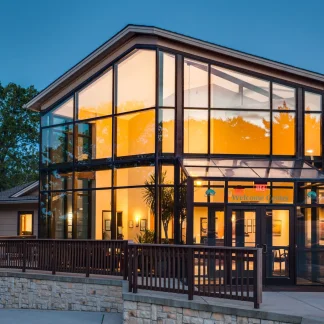VA North Texas Health Care System - Denton CBOC
VA North Texas Health Care System - Denton Community Based Outpatient Clinic is ...
Since 1996, the Sante Center for Healing has offered sustainable recovery solutions to individuals and families struggling with drug and alcohol addiction problems. This premier rehab center utilizes traditional and innovative methodologies and approaches to substance abuse treatment. It is situated on top of one of the county's largest hills, spanning more than 16 acres in Argyle, Texas.
The Sante Center for Healing is one of the top five founding treatment centers in the US that helps individuals with long-term substance abuse recover from co-occurring disorders. This rehab center offers evidence-based clinical and medical programming to help people break the cycle of addiction.
A few of the addiction treatment programs on offer include medically supervised alcohol and opiate detox services, a residential treatment program focused on 12-step methodology, individual and group therapy, and dual diagnosis.
Other services offered by this addiction treatment center include an intensive outpatient program (IOP), a transitional living program, intensive workshops, monitoring, alumni support, and professional-specific treatment.
The Sante Center for Healing is in-network with most major insurances and a few smaller carriers. Still, it’s best to speak with your insurer to verify out-of-network coverage if necessary. Some of the insurances accepted include Carelon Healthcare Services, Compsych, Blue Cross Blue Shield, Evernorth Health Services, Humana, United Healthcare, Elevance, Kaiser Permanente, and more.
This rehab center is an approved continuing education provider, a SASH member, and accredited by CARF.
Contact us for more information: (940) 464-7222

Connect with Sante Center for Healing by calling their admissions team directly.
(940) 464-7222 Website Get DirectionsThe Commission on Accreditation of Rehabilitation Facilities (CARF) is a non-profit organization that specifically accredits rehab organizations. Founded in 1966, CARF's, mission is to help service providers like rehab facilities maintain high standards of care.
CARF Accreditation: Yes
State Licenses are permits issued by government agencies that allow rehab organizations to conduct business legally within a certain geographical area. Typically, the kind of program a rehab facility offers, along with its physical location, determines which licenses are required to operate legally.
State License: Texas License Number: 1670-1670A
Research clearly demonstrates that recovery is far more successful and sustainable when loved ones like family members participate in rehab and substance abuse treatment. Genetic factors may be at play when it comes to drug and alcohol addiction, as well as mental health issues. Family dynamics often play a critical role in addiction triggers, and if properly educated, family members can be a strong source of support when it comes to rehabilitation.
Group therapy is any therapeutic work that happens in a group (not one-on-one). There are a number of different group therapy modalities, including support groups, experiential therapy, psycho-education, and more. Group therapy involves treatment as well as processing interaction between group members.
Trauma therapy addresses traumatic incidents from a client's past that are likely affecting their present-day experience. Trauma is often one of the primary triggers and potential causes of addiction, and can stem from child sexual abuse, domestic violence, having a parent with a mental illness, losing one or both parents at a young age, teenage or adult sexual assault, or any number of other factors. The purpose of trauma therapy is to allow a patient to process trauma and move through and past it, with the help of trained and compassionate mental health professionals.
Group therapy is any therapeutic work that happens in a group (not one-on-one). There are a number of different group therapy modalities, including support groups, experiential therapy, psycho-education, and more. Group therapy involves treatment as well as processing interaction between group members.
Trauma therapy addresses traumatic incidents from a client's past that are likely affecting their present-day experience. Trauma is often one of the primary triggers and potential causes of addiction, and can stem from child sexual abuse, domestic violence, having a parent with a mental illness, losing one or both parents at a young age, teenage or adult sexual assault, or any number of other factors. The purpose of trauma therapy is to allow a patient to process trauma and move through and past it, with the help of trained and compassionate mental health professionals.
Trauma therapy addresses traumatic incidents from a client's past that are likely affecting their present-day experience. Trauma is often one of the primary triggers and potential causes of addiction, and can stem from child sexual abuse, domestic violence, having a parent with a mental illness, losing one or both parents at a young age, teenage or adult sexual assault, or any number of other factors. The purpose of trauma therapy is to allow a patient to process trauma and move through and past it, with the help of trained and compassionate mental health professionals.
VA North Texas Health Care System - Denton Community Based Outpatient Clinic is ...
Life of Purpose Treatment – University Of North Texas is a private rehab located...
McCary Counseling is an outpatient rehab located in Denton, TX. McCary Counselin...
Denton Treatment Services – Opioid Treatment is a private rehab located in Dento...